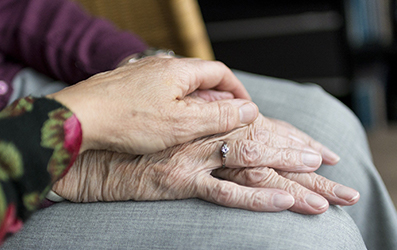What is a Care Plan and Why is it Important for Effective Support?

A care plan is a roadmap designed to help people receive the personalised care and support they need to live as independently and comfortably as possible. In nursing homes care plans are a guide for care professionals, ensuring the residents' needs are met while helping them maintain their wellbeing.
But why are care plans important? Beyond simply outlining daily tasks, they serve as a foundation for planning effective support, enabling care providers to work collaboratively with residents, family members, and other healthcare professionals. By taking into account the resident's health condition, personal preferences, and longer-term lifestyle ambitions, care plans ensure that the support provided isn’t just about managing symptoms—it’s about improving the individual’s whole life and enhancing their sense of independence and dignity. Advance care planning helps older people to make informed decisions about their future care while they still have the capacity to do so.
This blog explores the essence of care and support plans, detailing how they’re created, implemented, and reviewed to meet individuals' evolving needs. From understanding the support planning process to recognising the importance of ongoing reviews, we’ll look at how these care plans make sure care remains effective and person-centred.
Understanding Care and Support Plans
Care and support plans are a structured framework for meeting an individual’s health and wellbeing needs. This holistic approach ensures that every aspect of a person’s life—whether physical, emotional, or social—is taken into account.
A care plan begins with a thorough needs assessment, where care professionals evaluate a resident’s physical health, mental capacity, and social circumstances. This care needs assessment plays a really important role in determining care requirements. The aim is to gather a complete picture of the person’s care requirements, including any support needs related to their mental health or long-term conditions. For example, someone living with dementia might require activities that help them manage memory loss, while someone recovering from surgery might need short-term physical rehabilitation and a period of respite care.
By tailoring care plans to each individual, care providers ensure that the support delivered is not only appropriate but also achievable. This is especially important when addressing complex health conditions, where an effective plan can make planning for ongoing care much easier. Care plans are living documents that evolve with the person, providing a helpful foundation for their care and support.
The Support Planning Process
Creating a care plan is a collaborative process that places the person at the centre of decision-making. Known as the support planning process, this approach brings together the care team, family members, and other relevant people to develop a plan that reflects the person’s needs, wishes, and goals.
The process begins with an in-depth needs assessment, which evaluates the individual’s health and wellbeing, mental capacity, and personal circumstances. This assessment helps care professionals identify areas where support is needed, whether it’s assistance with daily living, medical care, or emotional wellbeing. The local council is often involved in conducting these assessments, reviewing and care plans. The plan also incorporates strategies for overcoming challenges, such as managing risks or navigating changes in the person’s condition which is helpful in planning long term care in a nursing home.
What sets an effective care plan apart is its focus on partnership. Wherever possible, individuals are actively involved in the planning process, helping to shape their own care and ensuring the plan reflects their preferences and priorities. This builds trust between the older person and their care team which helps create a sense of ownership over their care.
The support planning process doesn’t stop once the plan is written. Regular reviews are essential to ensure the plan remains up to date and responsive to the individual’s changing needs. Whether it’s adjusting care goals, addressing emerging health concerns, or incorporating feedback from the individual and their family members, this ongoing care planning process ensures the plan remains relevant and effective.
Benefits and Importance of Care Planning
Having a personalised care plan means a person's support needs are met in a way that matches with their life goals and preferences. This empowers them to take ownership of their care which makes them feel much better about having to make big changes like moving into a care home. Family members also benefit from the clarity and reassurance provided by a detailed care plan. Knowing that their loved one’s care is carefully considered and regularly reviewed helps ease anxieties and fosters effective relationships between families and care providers.
For care professionals, care plans guide them in delivering consistent and efficient support. They help reduce the risk of errors, such as missed medications or uncoordinated care, and provide a clear framework for managing risks and addressing challenges. By focusing on proactive care, these plans can help prevent hospitalisations and reduce the need for costly interventions, creating a more sustainable approach to care in old age.

Creating and Implementing a Care Plan
Creating a care plan requires a thorough understanding of the individual’s needs and a collaborative approach to designing strategies that address those needs effectively. A comprehensive care plan typically includes:
- Care Needs and Goals: This section outlines the person’s assessed health needs and desired outcomes, such as improving mobility or managing chronic pain. Personal assistants play a crucial role in providing support tailored to care home residents' needs, enhancing independence and improving the quality of care.
- Action Plan: Specific steps for achieving these goals are detailed, from medication schedules and lifestyle changes to care home needs and therapy sessions. Including regular visits from other healthcare professionals, like GPs, Chiropodists, or Physiotherapists, is essential to improve overall wellbeing.
- Responsibilities and Risks: The plan specifies who is responsible for each aspect of care—be it the care team, family members, or external specialists—and identifies potential risks or challenges, along with strategies to mitigate them.
To ensure the plan is practical and easily understood, it’s written in plain English and tailored to the individual’s level of understanding. This is particularly important for those with dementia, where the Mental Capacity Act requires that decisions are made in their best interests while promoting their involvement as much as possible.
Reviewing and Updating the Care Plan
A care plan isn’t a static document; it’s a dynamic tool that evolves with the individual’s needs. Regular reviews are an integral part of the care planning process, allowing care providers to monitor progress, evaluate effectiveness, and make adjustments where necessary.
Reviews focus on tracking the individual’s progress toward their agreed outcomes. For example, if the person’s goal is to regain independence after surgery, the care team will measure improvements in mobility or self-care abilities. These measurable indicators provide a clear picture of whether the plan is working or needs refinement. Having up to date information readily accessible to both the workforce and individuals ensures that care plans remain current and effective.
Ultimately, reviewing and updating a care plan ensures it remains aligned with the individual’s evolving needs and goals. Whether it’s adjusting to changes in the person’s health condition, incorporating new treatments, or responding to feedback, these reviews ensure care remains person-centred, effective, and compassionate.


Personalised Care at Deeside Care Home
Care plans are the cornerstone of effective support, providing a personalised approach that empowers individuals and guides care professionals. By focusing on the person’s health condition, personal preferences, and long-term goals, these plans ensure that care is not only about meeting basic needs but also about enhancing quality of life and promoting independence.
At Deeside Care Home, we believe every individual deserves care that is as unique as they are. With our personalised care plans, experienced team, and commitment to creating a warm and supportive environment, we help our residents live fulfilling and independent lives. If you’d like to learn more about how we create and implement tailored care plans, or if you’d like to explore our approach to compassionate care, we’d love to welcome you for a visit. Get in touch with Deeside Care Home today and see how we can support you or your loved one in achieving their goals and enjoying peace of mind.





